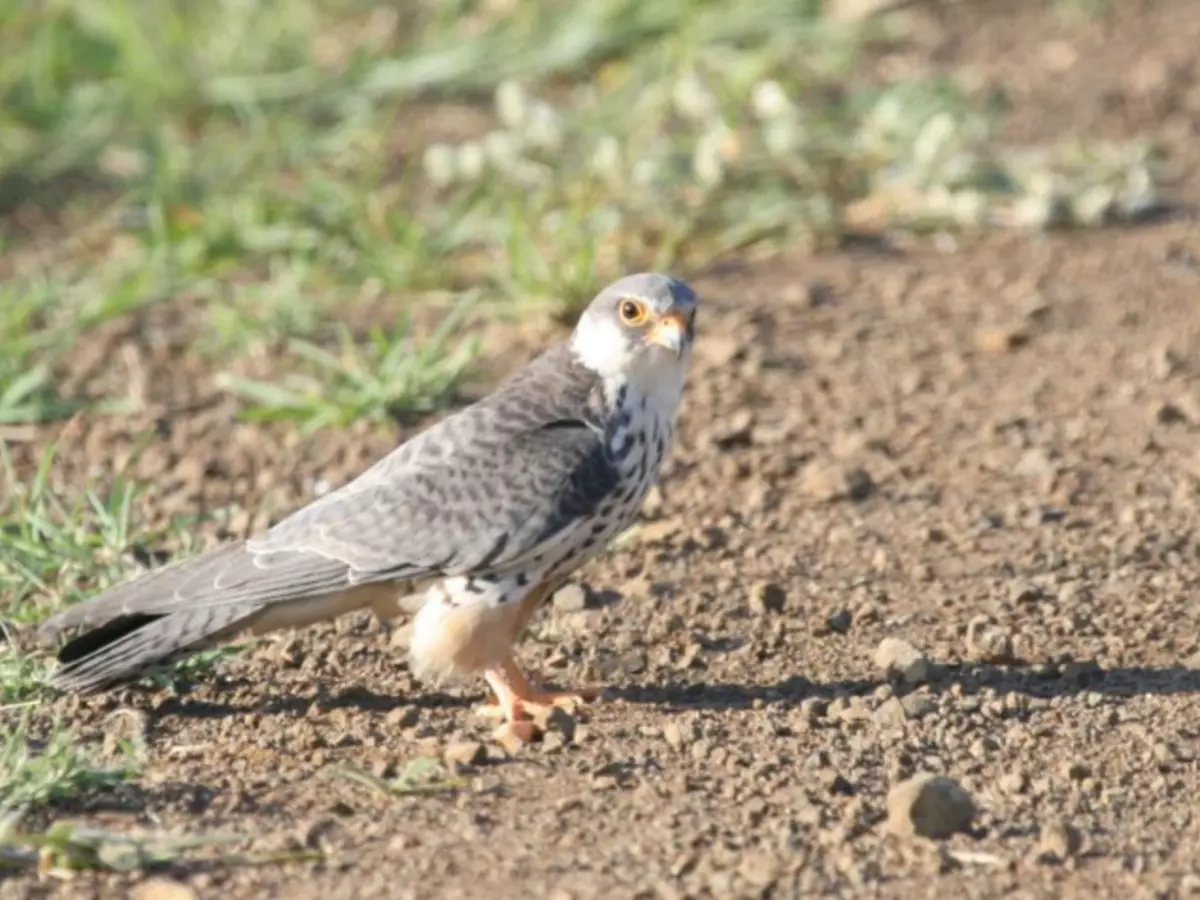This Satellite-Tagged Falcon Has Flown A Record 60,000 Km Between India & South Africa In 3 Years!
An experiment being conducted in Nagaland shows the return of an Amur Falcon, called Naga, to India for the third time since it was tagged. Naga¡¯s flight is aimed to help conserve these beautiful birds and their amazing journeys.

Amur Falcon is a small raptor of the falcon family. It breeds in South Eastern Siberia and Northern China Sea before migrating to India, and over the Arabian Sea to winter in Southern Africa. Thus, it crosses long distances travelling all the way from Eastern Asia to Southern Africa.
'Naga', one of the three Amur falcons fitted with a satellite tracking chip in Nagaland's Doyang area, will return to India for the third consecutive year, clocking more than 60,000 km. Two of the other birds, Pangti and Wokha (also fitted with satellite tracking chips) have now been rendered inactive. Though the birds undertake the longest migration path and journey for more than 22,000 km, migrating only once or twice, what has amazed ornithologists is that it is Naga's third consecutive round.
Pangti had flown 40,000 km.

falcoproject.eu
The wide breeding range and large population size of the Amur Falcons resulted in the species being neglected. Their flocking behaviour during migration and the density at which they occur, threatened the life of these birds and exposed them to hunting. The birds are hunted for food in many parts of the world.
In 2012, mass trapping and capture of migrating Amur Falcons in Nagaland was reported in the media. It was then that Nagaland took a lead and started an innovative campaign wherein they banned hunting of the birds.
These birds are now preserved under the Wildlife Protection Act of 1972.

Wildventures
On November 7, 2013, three Amur Falcon birds ¨C Naga, Pangti and Wokha ¡ª were fitted with 5 gm satellite transmitters and released. The birds were released from Doyang in Wokha to go to South Africa after crossing a difficult journey over the Arabian Sea. The satellite transmitters allowed their migration journey to be tracked and a successful campaign was begun to protect the birds.

The tagging was a joint mission undertaken at Pangti village in Wokha district by two leading scientists from MME/BirdLife Hungary, Peter Fehervani and Szabolcs Soil; Nick Williams, Programme Officer ¨C Birds of Prey (Raptors), Convention on Migratory Species Office, Abu Dhabi, United Nations Environment Programme; R. Suresh, a scientist from the Wildlife Institute of India; and the Nagaland Forest Department.
The objective, apart from tracking the amazing migration journey, was also to better understand the behaviour and ecology of the Amur Falcon during its presence in Nagaland and in wintering areas in Africa. The project is also trying to raise awareness of the international importance of the Amur Falcon and to promote falcon conservation activities, particularly among local communities in Nagaland.

Wikimedia
With Nagaland scripting the success story of Amur Falcon conservation, the trapping, killing and selling of these birds is now a criminal offence and punishable with three years of rigorous imprisonment or with Rs 25,000 fine or both under section 51 of the Protection Act 1972.
The world has recognised Doyang Pangti village as the world's Amur Falcon capital.
Every year from October, millions of Amur Falcons from Mongolia, Northern China and Southeastern Siberia flock at Doyang to roost before they start their journey to South Africa to spend their winter. More than one million birds can be seen in just 30 minutes. ¡°It is a very rare and exciting sight indeed", the Union Minister of State for environment, forest and climate change, Prakash Javadekar said.

conservation.org
